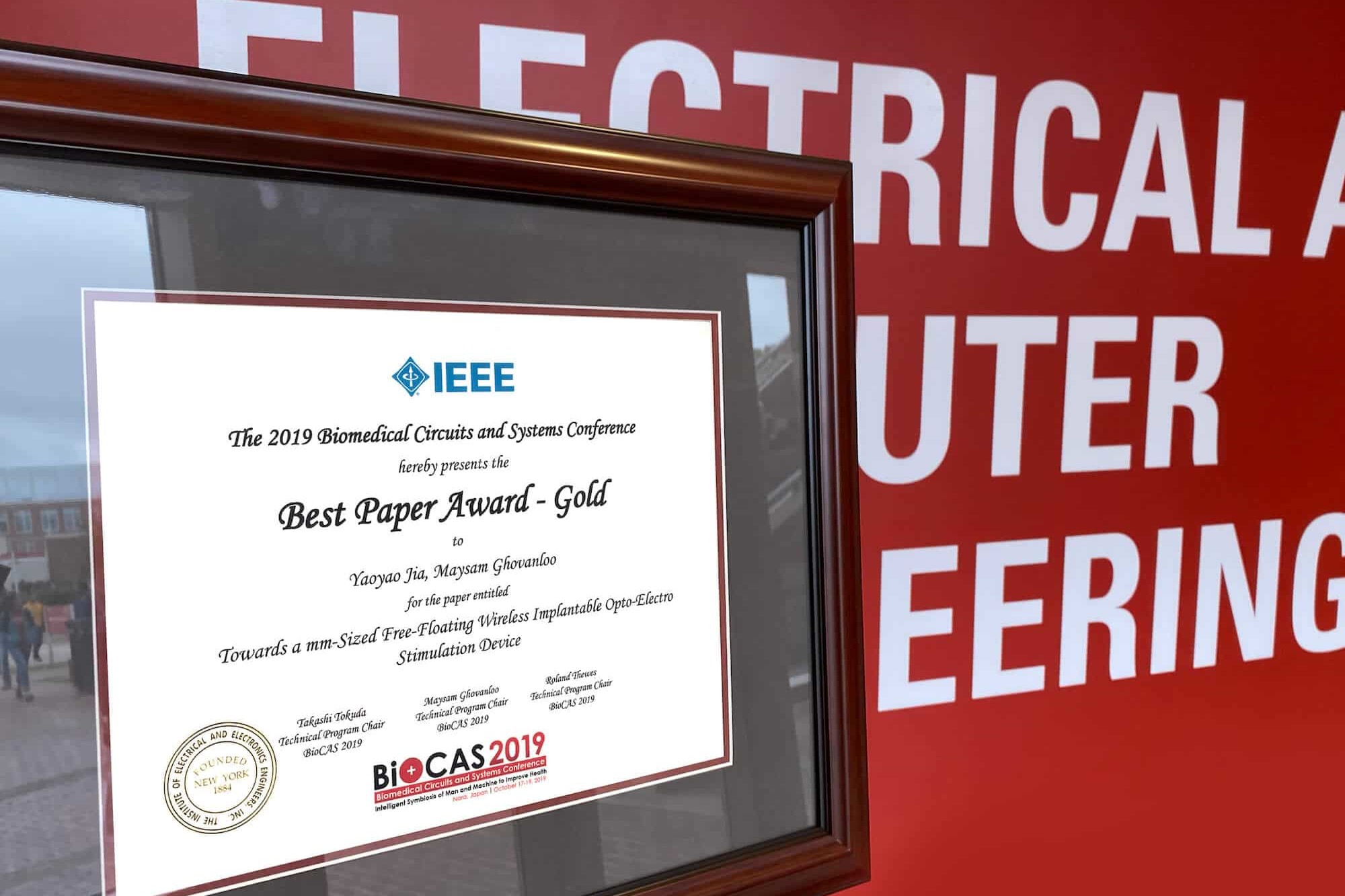
Yaoyao Jia Wins IEEE Best Paper Award
Congratulations to Yaoyao Jia, winner of Best Paper award from IEEE Transactions on Biomedical Circuits and Systems for her work on mm-sized wireless implantable opto-electro stimulation devices.
October 30, 2019 ![]() Charles Hall
Charles Hall
Yaoyao Jia, an assistant professor of electrical and computer engineering received the Best Paper award from IEEE Transactions on Biomedical Circuits and Systems (TBioCAS). Her paper is entitled “Towards a mm-Sized Free-Floating Wireless Implantable Opto-Electro Stimulation Device”
IEEE Biomedical Circuits and Systems Conference (TBioCAS) is a premier international forum for presenting the interdisciplinary research and development activities at the crossroads of medicine, life sciences, physical sciences and engineering that shape tomorrow’s medical devices and healthcare systems. This conference brings together members of our communities to broaden their knowledge in emerging areas of research at the interface of the life sciences and the circuits and systems engineering.
“My work presented in this paper is a mm-sized free-floating wirelessly-powered implantable 16-ch opto-electro stimulation (FF-WIOS2) system-on-a-chip (SoC) design for the next generation of brain-machine interfaces (BMI) to be able to interface with large-scale neuronal ensembles over large brain areas with a distributed architecture consisting of multiple tiny implants,” explains Jia.
“The FF-WIOS2 is effectively powered through an optimized 3-coil inductive link, which also carriers the stimulation parameters via the forward telemetry and sends power information back via the back telemetry. Based on the user-defined pattern, the FF-WIOS2 SoC can generate large instantaneous current needed to drive the selected LEDs and pass the threshold needed for optogenetic stimulation despite the weak inductive link of a mm-sized device. It is also capable of safe electrical stimulation with a combination of active and passive charge balancing. The FF-WIOS2 SoC achieves high-level integration of up to 16-ch optical and 4-ch electrical stimulation, providing the end-user with the flexibility to specify the type and patterns of stimulation.”
Jia received her Ph.D. in Electrical and Computer Engineering from Georgia Institute of Technology in 2019. During her Ph.D. studies, she has built bi-directional neural interface devices for closed-loop neuromodulation, distributed mm-sized opto-electro stimulation implants, inductive power transmission systems for omnidirectional wireless power delivery, and smart data acquisition systems for enabling large wireless coverage and eliminating RF blind spots. She also worked on power management IC design during her M.S. in Microelectronics and Solid-State Electronics from the University of Electronic Science and Technology of China, Chengdu, China.
